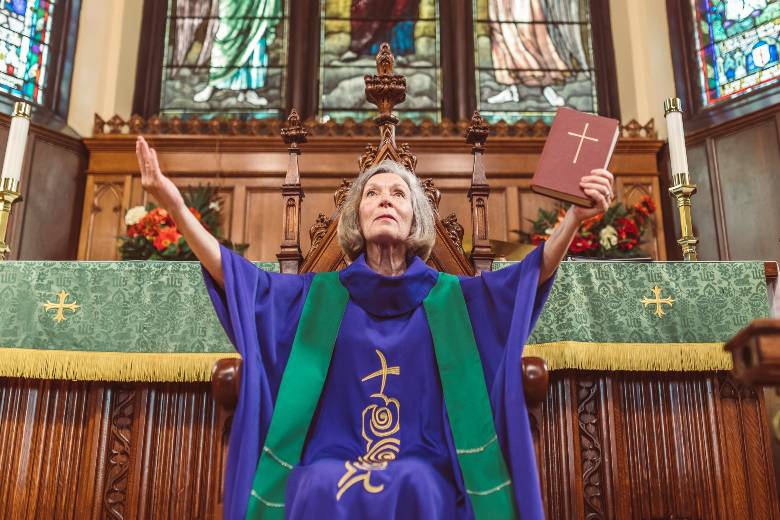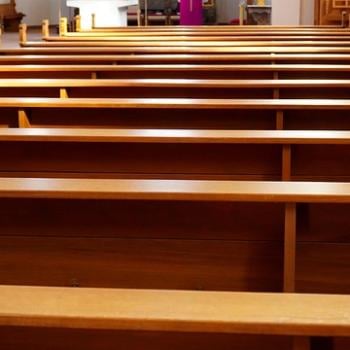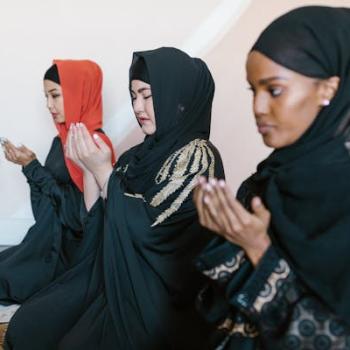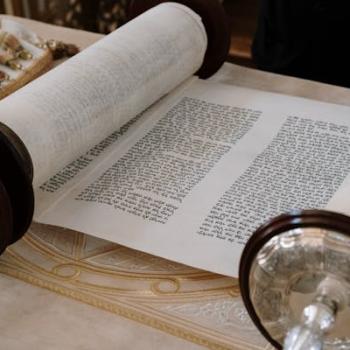
THE RELIGION GUY’S ANSWER:
Why? Simple. Because they believe that’s what the Bible teaches. But other conservative evangelical groups see female clergy as biblically proper, for example the Assemblies of God, Evangelical Covenant Church, Free Methodist Church and Salvation Army, along with many independent congregations.
The question is timely because the June 13-14 annual meeting of the Southern Baptist Convention, America’s largest Protestant denomination, will be a landmark on this. The gathering will decide whether to expel any congregation with a women pastor, thus affirming the SBC Executive Committee’s February expulsion of five such congregations. Among them is one of the Baptists’ biggest and most influential, Saddleback Church in California, long led by popular author Rick Warren.
Among Baptists, a local congregation ordains clergy, and the SBC upholds the total decision-making independence of each local congregation, so each is free to ordain women. However, the June meeting could establish a new nationwide policy that defines women’s ordination as such a doctrinal heresy that fellowship must be severed.
Christianity Across the ages
Across history, Christianity has largely been led by men, as with other world religions and with most societal institutions in most times and places, Protestants have been changing that. In the U.S., a few U.S. Protestant women were ordained beginning in the 19th Century, including by evangelical churches. In the decades after World War Two, major “mainline” Protestant denominations ended their gender barriers. Women now make up 35% of the students at campuses in the Association of Theological Schools.
Though the SBC now anchors the men-only side in the ongoing debate among evangelicals, this was not always the case. Susan Shaw of Oregon State University says the SBC’s first female pastor, ordained in 1964, was Addie Davis of Watts Street Baptist Church in Durham, North Carolina, followed by others in the 1970s and 1980s, Shaw herself among them.
A female clergy organization, founded in 1983, reported by 1987 that the SBC had 460 ordained women, though only 18 led congregations, alongside associate pastors, educational pastors, missionaries and chaplains.
A new regime among Baptists
But beginning in 1979, hardline conservatives (called “fundamentalists” by their foes) consolidated control of the SBC. By 1984, the annual meeting approved a resolution that affirmed “the autonomy of the local church” but said the New Testament (1) teaches that “women are not in public worship to assume a role of authority over men lest confusion reign” and (2) ”excludes women from pastoral leadership to preserve a submission God requires.”
Important Southern Baptists became leaders in the Council on Biblical Manhood and Womanhood, formed in 1987 to promote the “complementarian” outlook, which emphasizes distinct male and female roles, over against rising evangelical “egalitarians.” Among other things, the council says though men and women are spiritually equal the Bible teaches that “some governing and teaching roles within the church are restricted to men.”
Then came a 2000 revision of the SBC’s statement of beliefs from 1925, the Baptist Faith and Message. A new insert declared that “while both men and women are gifted for service in the church, the office of pastor is limited to men as qualified by Scripture.” There’s ambiguity whether that applies only to preachers who lead a congregation, as opposed to clergy ordained for other forms of ministry. Some want to also add the men-only tenet to the SBC’s Constitution.
So: What About the Bible?
What does the Bible say? Sharp-eyed readers will note that a 1984 resolution footnote claimed support from biblical I Timothy 2:12ff and I Corinthians 14:33ff. Yet the 2000 statement does not cite the Corinthians passage, which says that “women should remain silent in the churches. They are not allowed to speak, but must be in submission, as the law says. If they want to inquire about something, they should ask their own husbands at home; for it is disgraceful for a woman to speak in the church.”
Does the Apostle Paul’s admonition to Corinth apply to all churches in all eras? Many conservatives think that would create a biblical contradiction because the Apostle Paul’s letter reports without criticism (in 11:5) that Christian women did in fact speak in prayers and prophecies during worship. By this interpretation, Paul’s concern here was limited to situations where women had become disruptive or were ill-informed.
That leaves the I Timothy passage, which is pivotal in this complex debate. [The Guy sidesteps liberal claims that Paul himself did not write this letter, which can be deemed authoritative Scripture regardless of the author.] The text says “a woman should learn in quietness and full submission. I do not permit a woman to teach or to have authority over a man; she must be silent. For Adam was formed first, then Eve. And Adam was not the one deceived; it was the woman. . .”
Evangelicals’ competing views on this passage are typified by two of their favorite commentaries. The ESV Study Bible admits that parts of this passage are “notoriously difficult,” but asserts that it clearly forbids women “to publicly teach Scripture and/or Christian doctrine to men in church” or “to exercise authority over men in church.” This commentary limits women to teaching other women and children, though it does not extend restrictions on women to secular business or government.
The NIV Study Bible notes that restrictive interpretation but also states that “some” believe this passage barred only teaching “by women not properly instructed,” which was the problem in Ephesus, and worried that “such women tended to exercise authority over, i.e to domineer, the men.” If so, then Eve “illustrates the deception of the untrained and aggressive Ephesian women” who were promoting “false teaching,” the central concern of this letter. But complementarians say mention of Eve means the gender barrier was built into God’s creation design.
Also intriguing, the Greek word here is accurately translated as either “woman” or “wife,” and thus could apply only to women overruling their husbands in church in ways ancient culture would consider unseemly. Another aspect is that in the modern context most Protestants avoid one-person rule by the pastor, whether male or female, and exercise authority collectively along with lay elders or deacons.
Further info on all this
A comprehensive survey of the “two perspectives” on the Bible among conservatives is found on pages 355 – 373 in this study report from the Christian Reformed Church, which accepts both viewpoints: www.crcna.org/sites/default/files/2000_agenda.pdf/ Also see postings from the “complementarian” Council on Biblical Manhood and Womanhood at https://cbmw.org/ and from “egalitarian” evangelicals in Christians for Biblical Equality at www.cbeinternational.org/.
Looking at Christianity beyond Protestantism, there’s no realistic prospect that Eastern Orthodox or Catholic churches will admit women to the priesthood. But in 2020 Pope Francis revived official study of whether women could be ordained as deacons.
(Full disclosure: In recent years, and for the first time, The Religion Guy has contentedly worshipped with Protestant congregations led by a woman pastor.)













